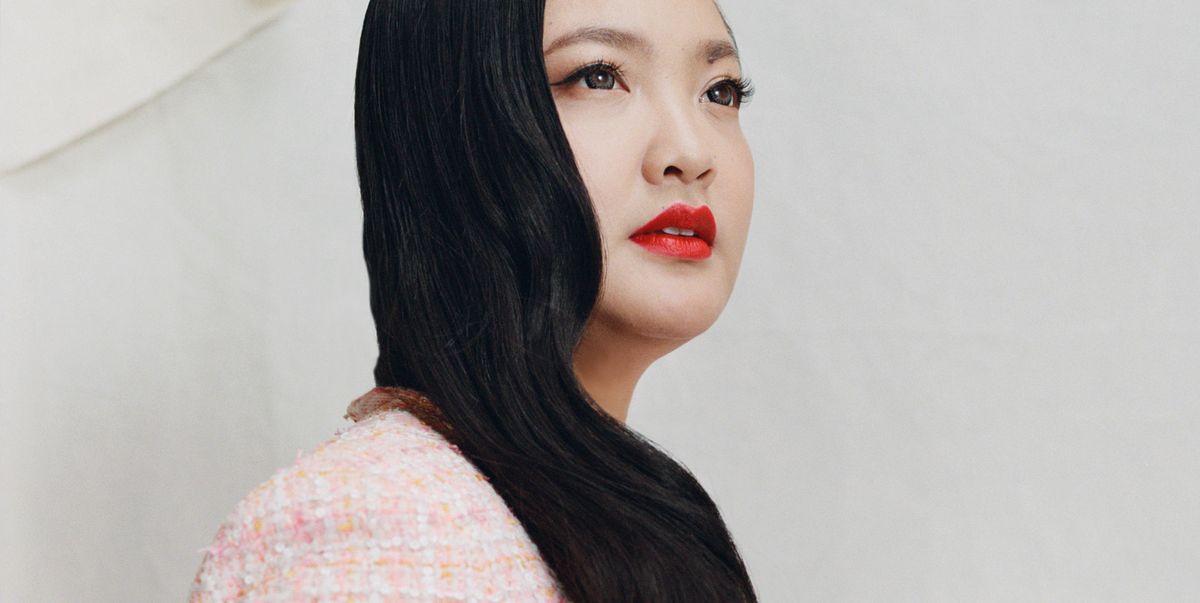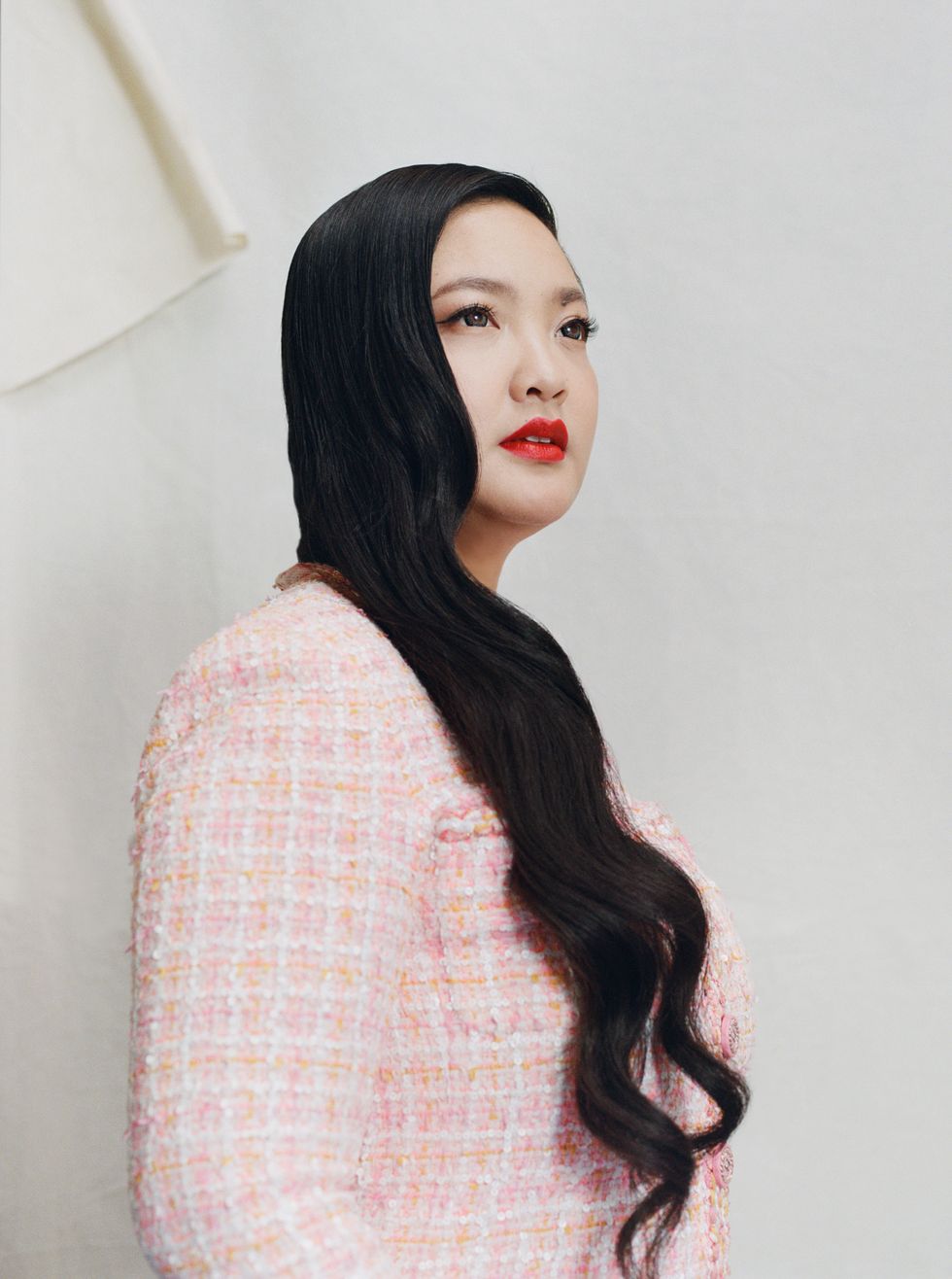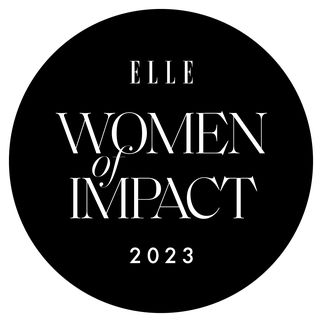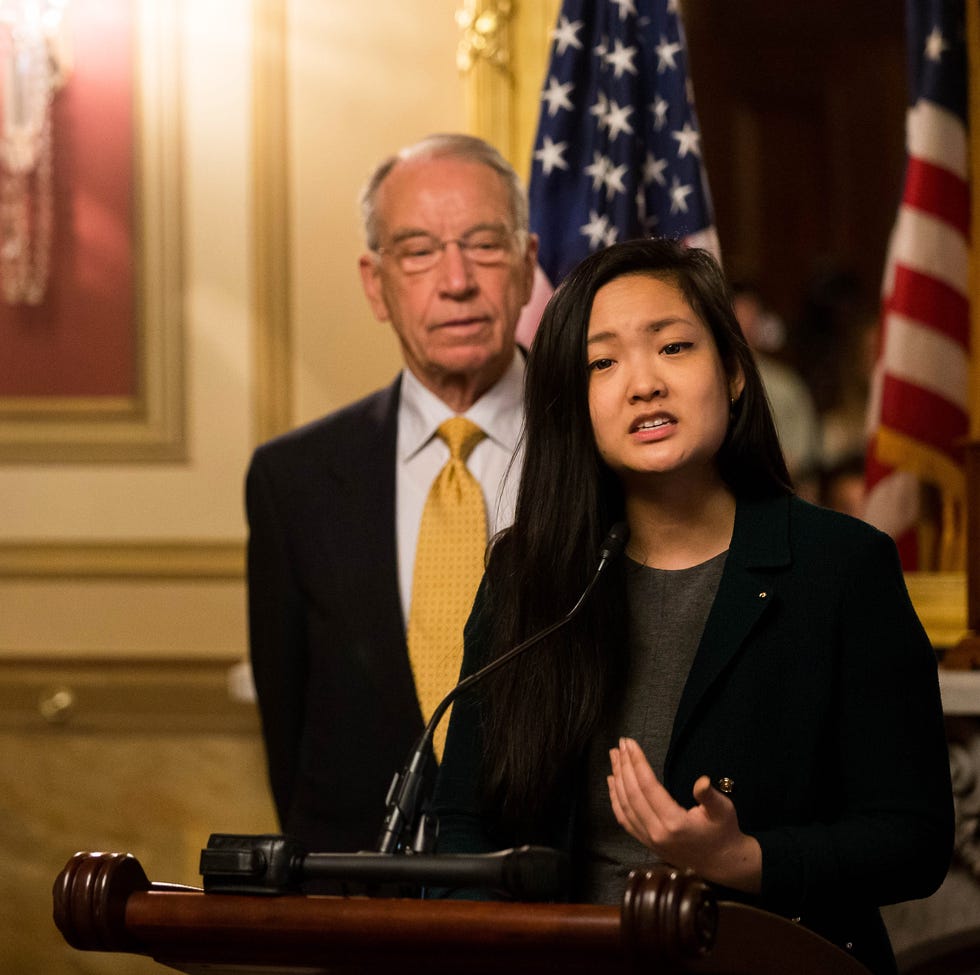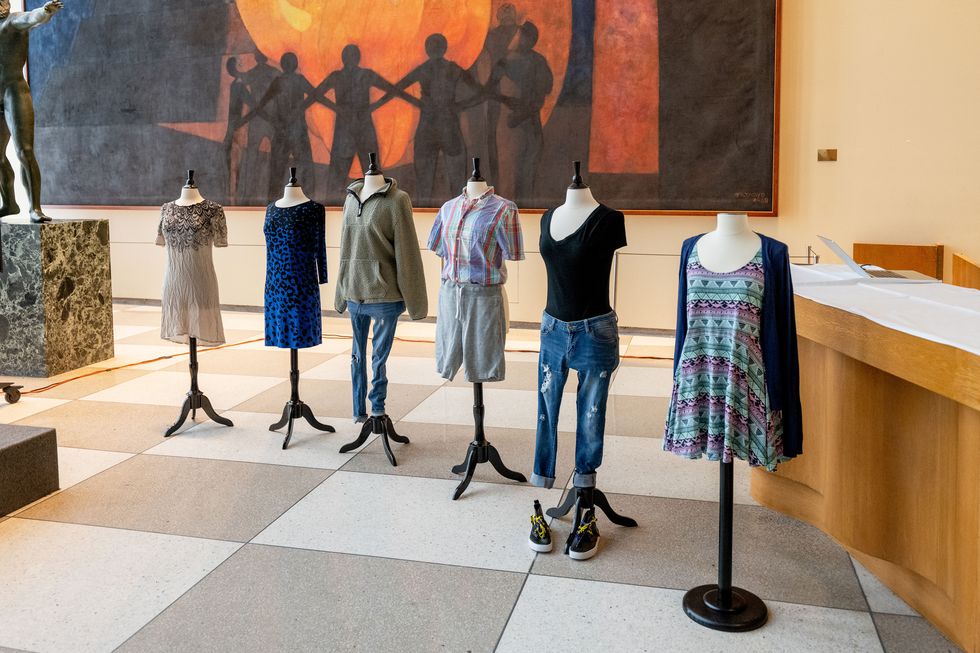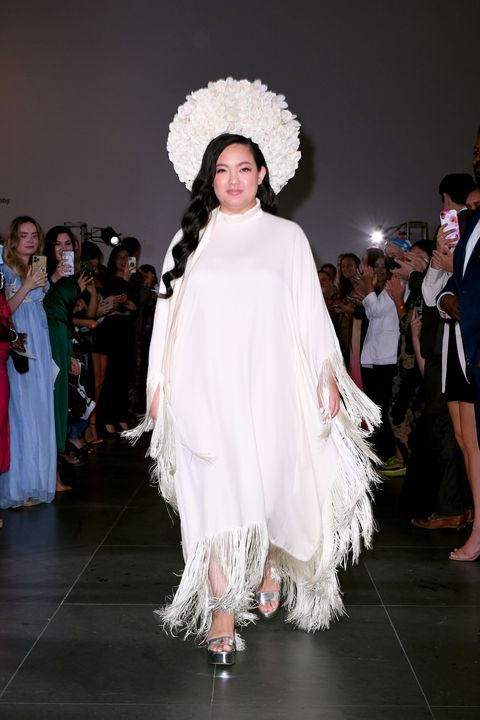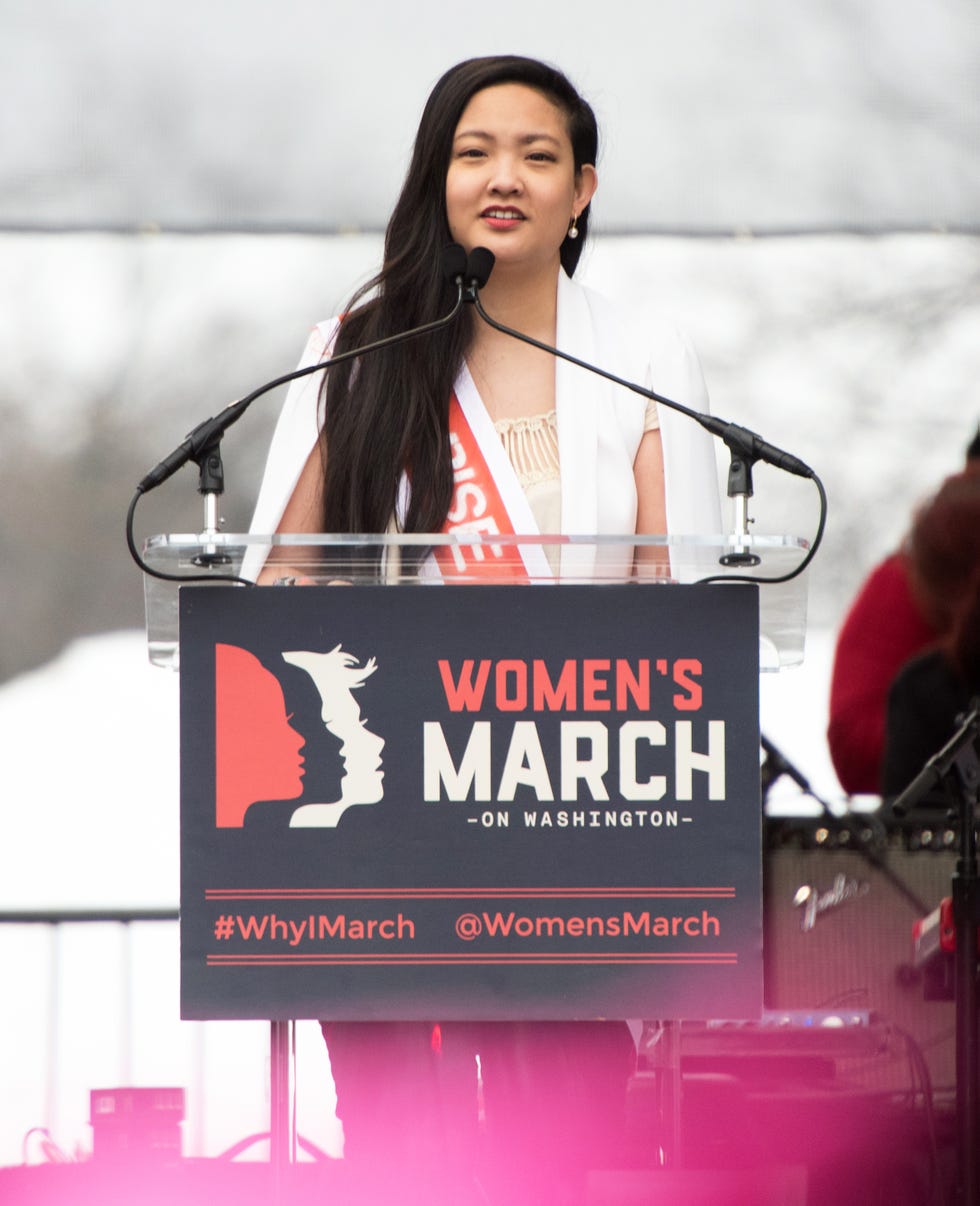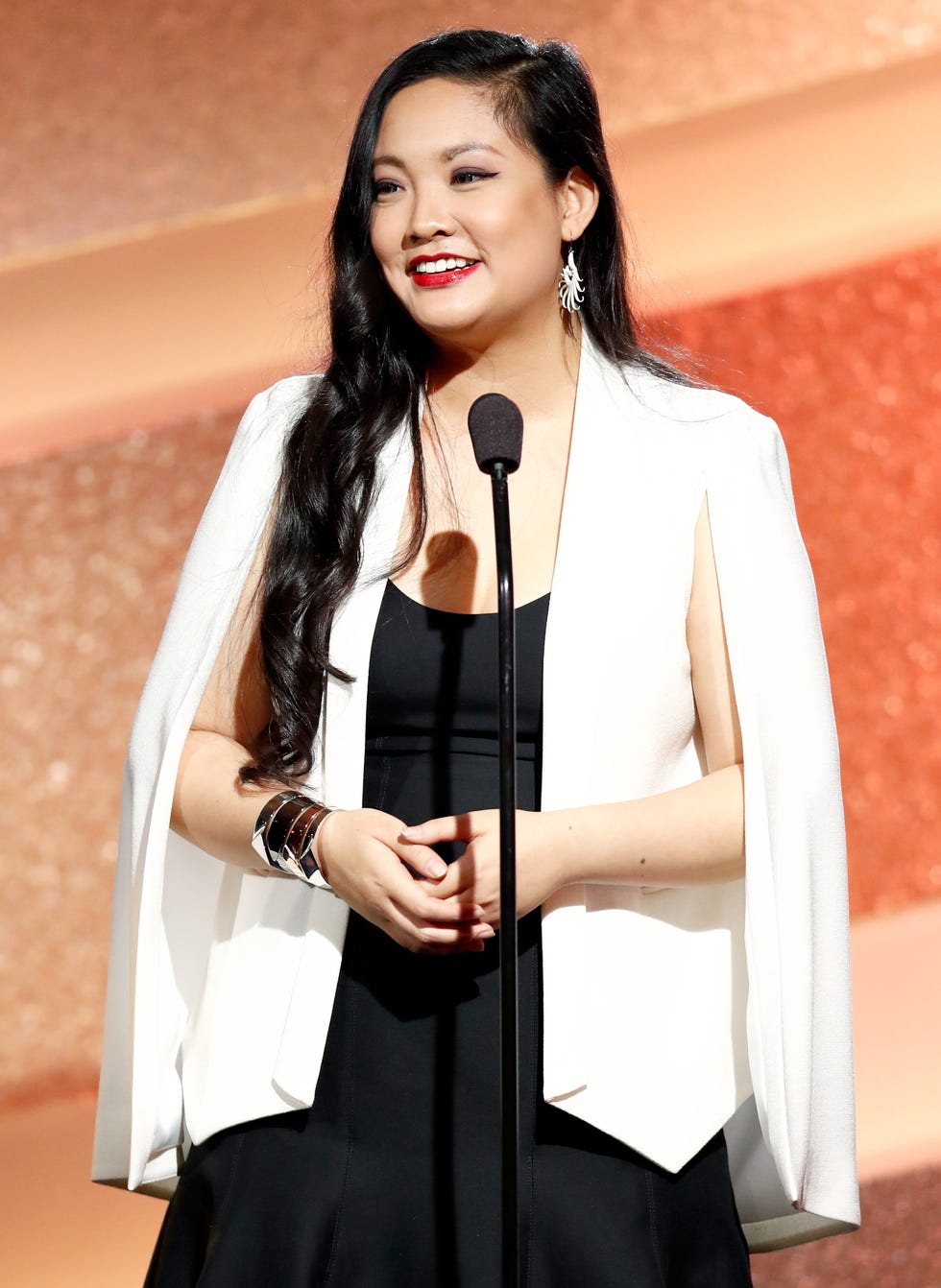Amanda Nguyen hates cocktail parties. But no one can avoid them, apparently not even someone nominated for the 2019 Nobel Peace Prize (and there was probably a cocktail party for that too). When she goes to them, the same thing happens. She answers the small talk question: “What do you do for work,” with details on her years spent advocating for rights for sexual assault survivors, and people start telling their stories. “‘I’m also a rape survivor,’ they say, and it instantly becomes a therapy session,” Nguyen explains. It continues on social media, where the CEO of Rise gets thousands of messages a month from survivors.
When Nguyen was a senior at Harvard, she was raped in her dorm. The injustice she felt after discovering her rape kit could be destroyed after only six months, and the trauma of going through the criminal justice system, prompted her to create Rise, a civil rights organization that has helped pass more than 65 laws, including the federal Sexual Assault Survivors’ Bill of Rights, which requires that rape kits be preserved for up to 20 years and guarantees medical examinations, among other rights. She’s also created an annual fashion show that features survivors and allies as models, a twist on the all-too-often-asked question, “What were you wearing?” In 2022, after six years of lobbying by Nguyen and Rise, the United Nations passed the first worldwide resolution that recognizes the needs of sexual assault survivors as human rights during peacetime.
Activism fuels her days, but Nguyen’s delight for life (“Joy is an act of rebellion,” she once told me), wonder, curiosity for worlds beyond Earth (she is also an astronaut-scientist candidate!), and perpetual hope buoy her. “You see that change is actually possible in nitty, gritty ways,” says Nguyen. “You’re able to win over this committee vote, move this bill forward. You don’t have to have courage for the entire journey. You just have to have courage for the next step, and then the next one, and the next one. I’m really grateful that I am not angry when I get up anymore. In fact, I find myself to be a pathological optimist, because it’s kind of necessary.”
On working across the divide
“What we see on TV is not an accurate reflection of what legislating is like on the ground, especially when you see the campaign literature that says everyone is the devil. When you’re actually meeting with people, who you may think are really terrible or you disagree with, you realize that they’re human and you can have a civilized conversation. One of the things that we interview for at Rise is radical empathy. Are you able to sit with somebody who has drastically different opinions from you? And are you able to put aside whatever bias you have about them and just sit with them? Can you actually walk the tolerance walk that you are preaching? It is really uncomfortable to do that, but you’ll find that if you’re able to do that, change can be made.”
On passing the UN resolution
“The United Nations is very different from the United States Congress. Every country, no matter how big or small, no matter how powerful, gets one vote, and that is the arena that we fought in. It took six years, because there is a lot of corruption. There’s a lot of turnover. Governments have coups. There are elections. There were some who tried to stop the process, but we persisted. [Some] said that Rise was too powerful, and I find it so ironic that these countries were saying that rape survivors fighting for their rights at the United Nations were too powerful, although I find that dynamic to be very flattering. The world is changing, and if the United Nations wants to say that they listen to the voices of the people, then this is what it looks like—people coming up with ideas and fighting for their rights.”
On what fuels her
“Anger actually doesn’t fuel me now. It was an absolute igniter, but I remember the ups and downs of trying to get this bill passed. For instance, I’d secure a meeting with the senator, and then I’d hear back that they’re not interested. Because it was so tied to a fresh trauma, it really was a rollercoaster ride for me. I realized at some point that yes, I had that anger, but it doesn’t last. And in order to do this work, [I needed] hope.”
On being underestimated
“Even now after I’ve written 65 plus laws, when I walk into a room, there will be people who explain my law back to me. Or when I go into a meeting and I am with a male colleague, people will automatically assume that he’s the CEO and not me. I have given up trying to prove myself because there is a lot of power in being underestimated, and it’ll come in time.”
On joy
“Joy is an absolutely necessary tool in order to sustain activism. Activism burnout is so real and people can’t just feel angry all the time, or else it will hurt them mentally and physically. Society at large has this idea where if you are an activist talking about a trauma, especially sexual trauma, you are perpetually locked in this glass box and supposed to be performing sadness forever. Or if you’re talking about something that happened to you and you want to fix that trauma, you must always be crying. I really reject that. I reject the martyrdom that is associated with activism in general because it’s really unsustainable. Martyrdom should not be expected.
Being able to be intentional about cultivating joy and having rest is really important. At Rise, we do these things called collective disconnects. People already have unlimited PTO, but on top of that we have forced PTO. So we have Spring, Summer, Thanksgiving, and holiday break. It’s just like in school where you have these breaks that are built in, where everyone takes time off at the same time.”
On her impact
“I am so grateful to not only have this idea and then see it come to fruition, but also be alive when people are able to benefit from it. It is so rare for an activist to be able to see that lifecycle of social movement and to see it spread beyond. I get letters from people telling me that their rape kit was saved or they were able to get justice—it’s still a 1 percent [chance], but to see that people had access to it. I’m so grateful.
I want others to be able to feel agency that they can change the world. I know people feel really lost right now, especially when you turn on Twitter or the news and it looks like a garbage dumpster fire jumping out at you. But you can absolutely make a difference in the world. No matter who you are, where you are, what resources you have, you can start from zero in the bank. And you can absolutely write these laws. You can write it yourself. You don’t have to be a lawyer. You can go get lawyers to help you. [After what happened to me], I sent out an email to everyone that I knew. I was shameless – my professors, my former bosses, internship bosses, all my classmates, literally everyone. I put it in a MailChimp and I remember the subject line was ‘Walk With Me,’ with a picture of the Boston State House. People will listen. People from both sides. Even the world.”
On justice
“My real justice is that I don’t want anyone to go through what I had to go through, and changing the world for my home country, the United States of America, and for the world.
But he knows who he is. I haven’t moved forward with my case yet, but justice is different for everyone. In The Castle by Kafka, there is a dystopian world where the person who is convicted is released back into society, even if they are on Death Row. The real punishment is that at any point in time, it could be tomorrow or ten years from now, they’ll knock on your door and that’s the day that you die. That is my punishment for my rapist because he knows who he is and he’s out there, seeing me do this. So any moment could be the day, and he knows who he is—that is my justice, my petty justice.”
On beauty
“I was at a plant shop and this person came up to me and said, ‘Hey, I’ve been following your work. I’m really grateful that you wear red lipstick, because that’s just something that I really like and it’s helped me try to find my own sense of self afterwards.’ One of the things about rape that is so debilitating, is that it’s a loss of agency over your body, your first home. Healing often means that you confront a loss of your self-esteem, and your own control over your own body. Beauty and body image really play deeply into it.”
On space
“I’ve always wanted to be an astronaut. My family used the stars to navigate to their freedom. My mom is a refugee [from Vietnam]. Her brother was the captain of the boat. But it’s also just cool. I had to put my dream of being an astronaut on hold to do Rise.
I am an astronaut scientist candidate, and my research is specifically on IBA suits, especially as it deals with the menstrual cycle. Over 90% of the people who’ve flown in space are men. A couple of years ago, menstruation was a reason used to deny women from being astronauts. But my studies would also relate to wound healing. If we are doing long duration missions to Mars, what happens when there are wounds and how do you stop them from bleeding? What is it like to menstruate and what is it like in microgravity and to do the tests on them?”
A version of this story appears in the April 2023 issue of ELLE.
ELLE Beauty Director
Kathleen Hou is ELLE”s Beauty Director. Previously, she held the same title at New York Magazine’s The Cut. She’s appeared in publications such as New York, The New York Times Magazine, Vogue India, Forbes, and Allure. She was also a co-founder of Donate Beauty, a grassroots beauty donation project started during the COVID-19 crisis, which donated over 500,000 products to over 30,000 healthcare workers across 500+ hospitals.
